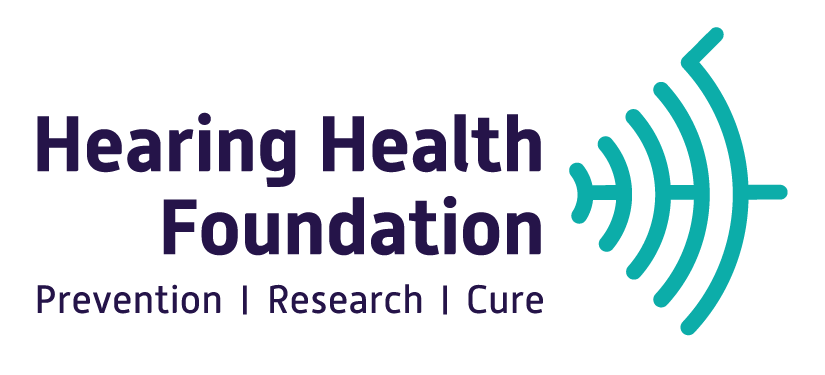By Frankie Huang
May is Better Hearing and Speech month and Hearing Health Foundation (HHF) would like to take this opportunity to raise awareness on the importance of early intervention for hearing loss in children, and the significant impact it can have on language development.
Hearing Health Foundation was instrumental in advocating for the Universal Newborn Hearing Screening legislation, as today 97% of babies are screened before they leave the hospital. In 1993, that number was 5%. Approximately 3 out of every 1,000 children in the United States are born deaf or hard of hearing. More than 90 percent are born to parents with typical hearing. Fortunately, early identification allows children with hearing loss to receive help they need during the first two years of life, a critical period for the development of speech and language skills. The earlier a child’s hearing loss is detected, the sooner the family can gather as much information as possible to make the best decision for their child’s language and communication approach.
With early intervention, children with hearing loss are able to develop language skills to help them communicate freely and actively learn. There are many services available to support children. For example, the Individuals with Disabilities Education Act (IDEA) ensures all children with disabilities have access to services they need for a good education. In addition, Head Start and Early Head Start are federally funded programs to help young children of low-income families become better equipped to succeed in school.
However, if the child’s hearing loss is left undetected or untreated, hearing loss can negatively impact a child’s language development. Delayed intervention can also adversely impact a child’s language development. One study had found that children who received earlier amplification or cochlear implantation had better language outcomes. Maternal education and communication modes used during early intervention can also improve language skills over time. A longitudinal study concluded that children with permanent hearing loss enrolled in an early intervention program before the 6 months of age developed on par with age-appropriate language skills than those who were enrolled after 6 months of age.
Similarly, another study had suggested that early enrollment in intervention programs were linked to higher language scores. It concluded that children enrolled before 11 months of age showed better vocabulary and verbal reasoning scores at 5 years of age compared with those enrolled later. Children that were enrolled later may experience delays that can interfere with academic development and comprehension in the classroom.
In the same study, the results suggest that family involvement was a contributing factor for the best outcomes of early intervention. Positive language outcomes were correlated with families that were highly motivated and active with their child’s intervention, while limited family support was associated with poor language outcomes. Also, families who were actively involved with early intervention were more likely to communicate better with their children, which contributes toward their overall growth. However, it is also important to consider the contrary; a lack of family involvement poses the largest challenge to early intervention. Specifically, a systematic review on the follow-up rate in newborn hearing screenings found that, on average, 20% of babies who failed the initial screening did not return for follow-up testing. The high loss to follow-up is believed to be attributed to a lack of adequate knowledge of the risks of hearing loss. This is the largest threat to the success of the newborn hearing screening program, as it becomes the family’s responsibility to follow-up on care beyond the initial hearing screening prior to discharge.
It is important to remember that hearing loss can occur at any time of life. Some forms of hearing loss do not appear until a child is a toddler or enters school, or even later. In addition, illness, ear infections, head injury, certain medications, and exposure to loud noise are all potential causes of hearing loss. In particular, recurring ear infections may negatively affect language development because of the resultant fluctuating hearing loss’ lack of steady auditory input necessary for speech and language development.
Even if your child or a child of a loved one does not have hearing loss today, Hearing Health Foundation strongly encourages regular checkups and annual hearing tests performed by audiologists, ENTs, pediatricians, or other health providers to monitor potential changes in hearing. These professionals are also excellent resources for intervention services to help overcome barriers to communication.
Receive updates on life-changing hearing research and resources by subscribing to HHF's free quarterly magazine and e-newsletter.



